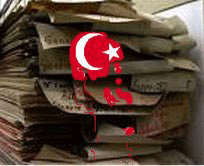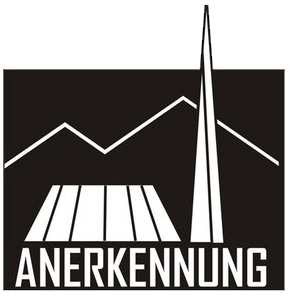
Press Release
Berlin, 02 January 2008
My name is Mehmet Sait Uluışık and I was born in Eskişehir (Turkey) on July 10, 1959. On November 20, 2007, at Yeşilköy Airport (Istanbul), without presenting any justification but ased upon an order from the Ministry of the Interior, I was declared a suspicious person, denied entry into Turkey and sent back to Berlin on the first return flight.
I have been living in Germany since 1984 and have worked as a journalist and publisher since 1992. Because of my Circassian ethnic background I have been interested in Circassian history and since 2005 have stopped working actively as a journalist and publisher and started devoting all of my time to gathering documents on the subject.
I was stripped of my Turkish citizenship in 1991 because of my failure to perform obligatory military service (based on Order #1956, dated June 7, 1991, supported by Statute 403, Section 25, paragraph ç). Since 1997, the year I became a German citizen, I have been entering and exiting Turkey regularly without incident.
I was not provided with the official reason for denying my entry into Turkey. Despite this, based upon information that I was able to gather from contacts I made, the reason I was denied entry into Turkey is apparently to prevent my performing research at the Presidential Ottoman Archives (Başbakanlık Osmanlı Arşiv, hereinafter “BOA”) in Istanbul.
There is a very simple reason why my entry to Turkey was blocked instead of directly prohibiting my research at the archives. If the latter had occurred, it would have made an obvious statement that would have belied the arguments of the governing AK Party administration that “Our archives are open to all. Everyone’s welcome to come in and examine them,” or “let the historians form a commission.” By using a different strategy and preventing my entry into the country, it allows for the raising of a suspicion that there are perhaps other issues in my personal background.
Recently, I started to wonder about the history of Circassians and I want to write a book about the subject. The actual topic that interests me is “Did the Circassians play any role in the events of 1915 and if so, what?” Also, I have been trying to find the answers to the question, “What was the relationship between Circassians and other minorities during the period in question, prior to that and afterwards?” For the past two years, I have been working in a regular, disciplined manner at the BOA and systematically gathering documents on the subject. A large part of my life during the past two years has been taken up this way at the archives in Istanbul.
During my work at the archives I was frequently blocked in my efforts by the employees, who are known as followers of Turkish-Islamic synthesis (mostly supporters of the Turkish nationalist party). I believe that the denial of my entry into Turkey was the result of efforts by these same individuals. At the airport I was presented with a “Record of Denial of Entry” form. On the form was all of my identification information. This information taken from my German ID card is available in only one place, and that is the Presidential Ottoman Archives.
The police officer at the airport informed me that the order [to deny entry] came directly from the Ministry of the Interior, not from the General Directorate of Security. Based upon his investigation of the issue, parliamentarian Mr. Ufuk Uras informed me that the entry denial did not come from the Ministry of National Defence nor did it have anything to do with military service.
Since the issuance of the entry denial on Nov. 20, 2007, I have made no effort to broadcast this information. I believed that the ban was an effort to discredit the AK Party administration. I had hoped that the AK Party administration would quickly rectify the situation when it so obviously contradicts the government’s policies as stated to the public. I tried to remain silent because if the incident were revealed, it would create an obstacle in Turkey’s relations with the European Union and lead the way to lowering opinion towards the current administration and Turkey in general, especially after recent discourse regarding the events of 1915. I tried to resolve it through private channels.
Unfortunately both my own efforts and those of my attorney to reach the authorities within the AK Party have come to a standstill. I was unable to get anywhere with my efforts. That leaves only one option: letting the public know, through the media, about a mindset that attempts to prevent an individual from conducting research in the archives by denying them entry into the country.
It is obvious what sort of difficulty is going to befall someone like me who is doing nothing other than gathering documents in a systematic manner from the archives, if a government that claims “Our archives are open to all; we welcome the formation of a historians commission” turns around and not only denies that person access to the archives but even entry to the country itself. Nothing that Turkey and its administrations say on the subject can be considered credible. One can only smirk at a statement like “Let’s solve our problems from the past” when it comes out of a mindset that views working in the archives and gathering documents as criminal. This can only be answered with the statement, “Do your homework first, then open up the archives to everyone.”
I want this disrespectful action against me resolved immediately and my work, which has been delayed because of it, compensated for as soon as possible.
Respectfully,
Mehmet Sait Uluışık
Jan. 2, 2008 – Berlin
